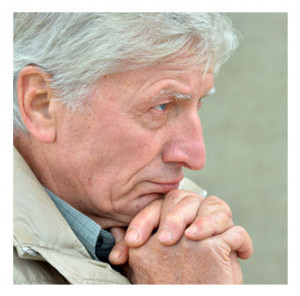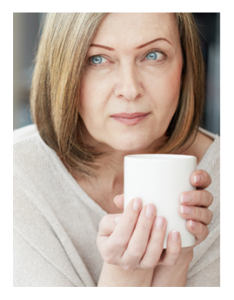It isn’t the first time I’ve heard or read that what we focus on can alter our brains… literally.
 But it is the first time that I truly thought through the effects of negative thinking on the brain, and what we can do about it when daily life involves dealing with gritty realities.
But it is the first time that I truly thought through the effects of negative thinking on the brain, and what we can do about it when daily life involves dealing with gritty realities.
In many respects, I am very fortunate. In fact, someone I met the other day said he thought I had lived a “charmed life.”
The fact is, that wouldn’t be true. However, I have lived an interesting life, a good life, a very “full” life and one in which there have been many extraordinary moments and exceptional experiences. I look forward to more of both. Better still — and parents will surely understand this — my children are decent, healthy, and grounded. While most mothers (and perhaps some fathers, too?) never entirely shed their parental worry, to know that you’ve launched your kids and they’re doing fine is very sweet indeed, and… a relief.
Obstacles Are Part of Life
We all know that life will throw challenges our way. It is how we deal with them that separates the “men from the boys” or, as I prefer to think of it, the “adults from the children.”
Like everyone, I’ve had my share of what the French might term inconvénients — inconveniences — and of late, I have allowed the negative side of the equation to carry more weight than the variables straining to balance things out. Obviously, if I can do something to lessen my perception or preoccupation with the downside in favor of the upside, it’s in my own best interest to do so.
Apparently, I shouldn’t subject myself to a terrible tongue lashing over dwelling in the darkside more than my logical brain tells me I ought to. It seems we are hard-wired to give the negative more weight than the positive. This article brings the point home.
… humans are evolutionarily wired with a negativity bias. Our minds naturally focus on the bad and discard the good. It was much more important for our ancestors to avoid threats than to collect rewards…
In addition, the brain is described as
… “Velcro for negative experiences and Teflon for positive ones.” While some individuals may be inherently more optimistic than others, it’s generally true that in order for positive experiences to “stick” in our brains as well as negative ones do, these positive experiences need to be held in our consciousness for a longer period of time.
Velcro Brain? Ah, Neuroplasticity…
Yikes! This “neuroplasticity” we are learning more about — the way our neural pathways are actually altered by environment and behavior — coupled with this “velcro effect” is illuminating. I had no idea that negative experiences stick more easily than positive ones, though it makes sense.
This leads me to consider the amount of time spent on enjoyable images or memories to focus on when I need to rev up my positivity. Perhaps forcing myself to sit with them, literally, feet planted on the floor, eyes closed, and conjuring my own Really Good Stuff for more than a few seconds (five minutes?) is in order.
Given that most of us lead stressful lives, the same article reminds us of the wretched role cortisol plays.
Cortisol, a stress hormone, breaks down the hippocampus, the part of the brain that helps form new memories… The more cortisol that’s released in response to negative experiences and thoughts, the more difficult it can become, over time, to form new positive memories.
If the bad stuff sticks and we’re going through truly terrible, stressful times — loss of a loved one, loss of job or home, serious health issues — then what?
Trauma, Grieving, Moments of Respite
Here is one of the thoughts I’m trying to reconcile. What about traumatic events? What about common but nonetheless deeply wounding events that require us to grieve, as alluded to above? We could use divorce or loss of a spouse as examples. Don’t we need to feel — before we can heal?
If we allow these ‘negative’ feelings to run their course — knowing we will come out the other side though it may be six months or a year or longer before the darkness lifts — has our brain been so altered through neuroplasticity that unsticking the negative is abysmally difficult?
 Is this only true if the grieving process is associated with a great deal of survival-related stress? Over money, for example — money that enables us to pay rent, to clothe our children, to see a doctor?
Is this only true if the grieving process is associated with a great deal of survival-related stress? Over money, for example — money that enables us to pay rent, to clothe our children, to see a doctor?
Some capacity to step back and find moments of beauty and gentleness — a perspective that lightens the load, even if temporarily — seems like a possible compensating option.
Mindfulness is the pop culture cure-all, but without the label and its overuse, is the concept nonetheless valid? Is it still helpful even in our most challenging hours? Is it enough to shift our negative thinking and the resulting impact on brain activity? Are simple distractions and simple pleasures — a conversation with a friend, a walk through the park, the flight of a butterfly — enough to remind us that the blackness of an emotional tunnel can and will eventually yield to light?
Combatting Anxiety and Its Effects
This article points out that worry and over-thinking are counterproductive, especially if your concern or anxiety goes on and on, as anxiety…
… drains your energy, affects your sleep, and spirals your mood and outlook on life. Focusing on your problem only strengthens the worry function in your brain.
Okay. Got it. Again, this is logical.
So what if our offsetting visualizations aren’t working? What if mindfulness and meditation feel impossible to master?
I am reminded that a pet can work wonders, or in my case, Real Housewives reruns. (Really!)
I do not expect that creating a positive experience to offset the negative is the only tool to establish constructive change or to meet an important goal. In fact, I believe in positive thinking in moderation, or maybe better stated as “managed” positive thinking. While I certainly don’t want my brain to become increasingly wired to hang onto negative or worry thinking, it is also in my nature to embrace pragmatism… And take action.
 It seems to me that with a combination of the two — action also giving us some element of control (which in itself can create more positivity) — we may achieve an improvement that will also encourage momentum toward better, happier, more positive outcomes.
It seems to me that with a combination of the two — action also giving us some element of control (which in itself can create more positivity) — we may achieve an improvement that will also encourage momentum toward better, happier, more positive outcomes.
Simple Things Are Healing
Then there are those incredibly simple things that perhaps we could all try. For example, early this morning as I was beginning my workday, instead of gulping down my coffee I sat, I stopped, and I sipped. I savored. I truly tasted my bold brew for those first few moments in the quiet.
Honestly?
I thought of nothing. And that felt good.
Perhaps for me, those few seconds are my “meditation.” Perhaps I need to allow myself five minutes of that necessary indulgence that may be doing more good than I realize. Moreover, I am certainly aware that there will always be beautiful moments that break through even on the worst of days — the burnt orange and fiery reds of fall foliage, the brilliant blue of the sky, the monarch in all its glory.
As for dealing with serious chapters in life — accepting that loss is inevitable and grieving is a process — my own rumination lands me here: In our most stressful times, we can hope there are people around to love us, we can take solace in the knowledge that we can come through, we can focus on good memories to sustain us, and we can always give to others, which is the best possible win-win.
You May Also Enjoy
When I’ve had moments of grief or SERIOUS stress, I’ve always been helped by looking for gratitude, and taking it right back to the basics of survival. I try to find a strand of *anything* to be grateful for… that I can have a hot shower every day, that I am in good health, that I have a warm place to sleep that night, that ‘this too will pass’, that my grandmother loves me even if no one else does (!), that I do not have to worry where the next day’s food is coming from, etc etc. So much of my worry and grief are over things that do not affect my survival, and that seems silly from a 30,000 view. Just my .02. xxx
Lately, I’ve been trying some lavender blend essential oils in a diffuser to keep nearby in the evenings while I’m reading or watching something distracting on netflix.
I am taking a once a week meditation class as well.